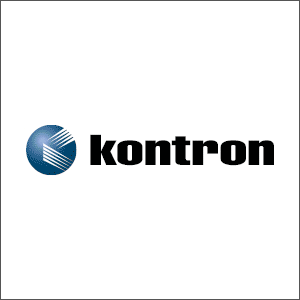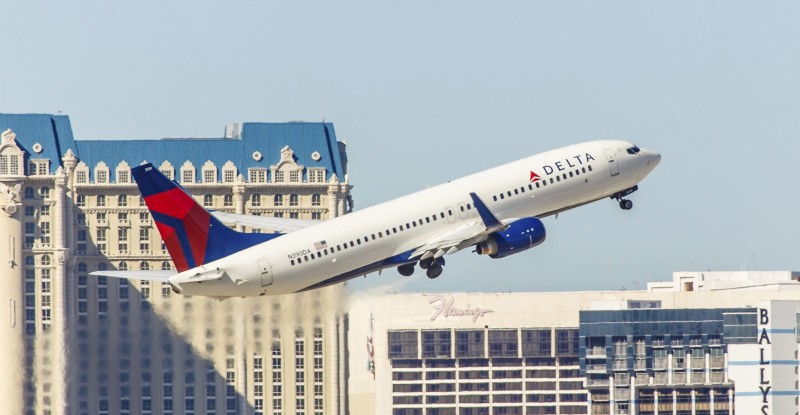As bandwidth constraints in the sky continue to bite Delta Air Lines is calling on the Federal Communications Commission (FCC) to permit the auction of new air-to-ground (ATG) licenses in the United States, saying the additional spectrum will support faster inflight connectivity for passengers, and enhance safety.
The FCC has been deliberating for years over whether to authorize mobile broadband service on a secondary license basis in the 14.0-14.5 GHz band (colloquially referred to as “14G”, this is within the Ku band primarily used for satellite communications). Earlier this year, the commission came very close to issuing a Report and Order for the auction to take place, but the Association of Flight Attendants-CWA filed an objection citing cyber security concerns.
In a letter this month to the FCC, Delta reiterated its eagerness to see the auction finally move forward. Noting that it operates the largest fleet of Gogo Internet-equipped aircraft – a total of 565 domestic mainline aircraft and 255 regional aircraft – Delta wrote, “This service is extremely popular. Delta’s customers have come to expect access to the Internet on every domestic flight, and Delta intends to meet those expectations. However, current bandwidth demands will soon exceed Gogo’s terrestrial network capacity. Demand will continue to grow and network capacity issues will become more severe until more spectrum becomes available. Additional spectrum in the 14 GHz band will open up new options for customers who are increasingly demanding robust Internet access.”
 The airline adds that Internet traffic “is increasingly dominated by bandwidth applications with low latency requirements such as video streaming, and the expectations of customers accessing the Internet on flights will follow”.
The airline adds that Internet traffic “is increasingly dominated by bandwidth applications with low latency requirements such as video streaming, and the expectations of customers accessing the Internet on flights will follow”.
Many would argue that current bandwidth demands already far exceed Gogo’s terrestrial network capacity. Describing the experience of passengers on a recent Gogo ATG-equipped flight between San Francisco and New York, travel analyst Henry Harteveldt says, “You could see the angst on business people. They expected to have reliable wifi; obviously had the need for it, and couldn’t [get it].”
Gogo CEO Michael Small has been candid about the network’s capacity constraints, which are perhaps more glaring now that Delta is offering Gogo Ku-band satellite-supported connectivity on many long-haul aircraft – which can be “far more reliable” suggests Harteveldt – and rival JetBlue Airways’ high-capacity Ka-band satellite-supported connectivity is generating excitement and news headlines for its ability to support a free streaming class of service.
But Delta’s argument for supporting the 14G auction extends beyond improving the passenger experience (#PaxEx). Additional spectrum “will also enhance aircraft safety”, it says, noting that more inflight bandwidth “will allow the development of better weather tracking, more robust monitoring of flight systems, and better situational awareness for flight control systems”.
With respect to the AFA-CWA’s suggestion that additional spectrum may present an undefined security risk, Delta notes that thousands of Internet-equipped aircraft currently operate each day worldwide, writing.
“Although this technology has been in use for the greater part of a decade, Delta is aware of no national security incidents caused even in part by the availability of Internet access. This is not because bandwidth is currently limited, as inflight satellite service provides comparable bandwidth to that sought by the airlines in the 14 GHz band. These satellite services are used often on international routes to and from the United States and other routes worldwide without incident. Delta is confident that opening up more spectrum for its domestic fleet that does not rely on satellite connectivity will not lead to safety concerns.”
“In addition, the Federal Aviation Administration (FAA) has studied and is continuing to review the issue of aircraft cyber security in-depth. Every piece of equipment, every new item of software, and all related modifications that Delta installs on aircraft have to pass rigorous inspection and evaluation by the FAA. With its heightened focus on cyber security, the FAA will address any issues that could arise from services offered using the 14 GHz band. The FCC should not delay the provision of spectrum based on ambiguous security concerns when these issues are better addressed at a more granular level by the relevant government agencies.
“Indeed, these agencies have already addressed security concerns in the FCC’s 14 GHz proceeding by recommending placing specific conditions on the ATG licenses. Furthermore, the FCC need not add delay for another layer of study to an already robust system of review and evaluation.”
Delta has already committed to partnering with Gogo in the launch of next generation ATG technologies for short-haul domestic aircraft flying within the US. ATG is less expensive and less cumbersome than satellite-supported connectivity, and so a sizable portion of Delta’s current domestic mainline fleet would be upgraded to a new ATG offering. Some 250+ Delta aircraft – including narrowbodies flying over water – have been earmarked to receive Gogo’s nextgen 2Ku satellite connectivity offering. Of course, Gogo would need to emerge victorious from the FCC auction, and secure at least one license, for it to execute its ATG plan with Delta.
Qualcomm, which originally proposed the auction, as well as Inmarsat and Panasonic have all expressed various levels of interest in participating. “I don’t know any other place you can find 500 MHz of spectrum so – while having complications in secondary use – it is still by far the most spectrum and the most intriguing. Bringing it to our industry would be great,” Gogo CEO Michael Small said in the past.
Multiple parties now anticipate the FCC will issue a Report and Order on the matter in the very near term.
Related articles:
- Delta’s big new wifi deal expected to get bigger with auction
- Flight attendants oppose it but IFC spectrum auction now likely
- Inmarsat signals strong interest in having US air-to-ground footprint
- Gogo committed to next generation ATG inflight wifi solution
- Qualcomm, Gogo disagree on how spectrum auction should play out










